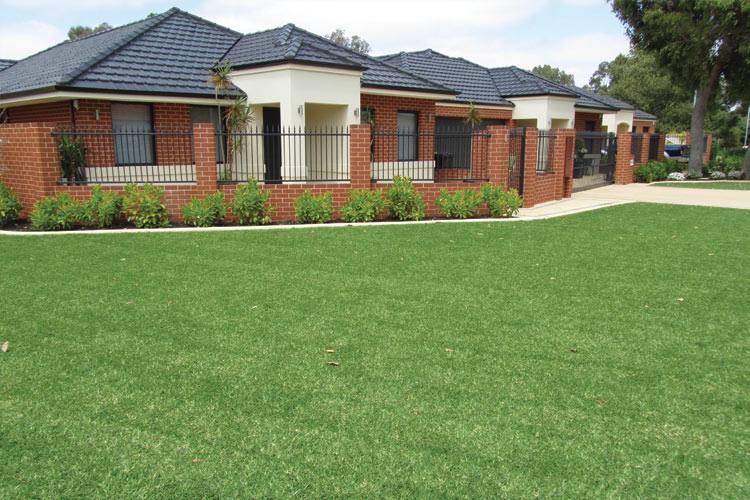As you sit comfortably beneath the shelter of your home, protected from the elements, have you ever stopped to consider just how important your roof is? It’s like a steadfast guardian, shielding you and your loved ones from rain, snow, and other forms of precipitation.
But what happens when your roof fails to fulfill its duty? Water damage can quickly become a homeowner’s worst nightmare, wreaking havoc on your property and draining your bank account.
That’s why it’s crucial to take proactive measures to ensure effective roof waterproofing. So, let’s explore these five essential tips that will not only safeguard your home but also provide you with peace of mind.
## Choose the Right Roofing Materials
Choose the right roofing materials to ensure a durable and waterproof roof for your home. When it comes to roof waterproofing, selecting the right materials is crucial for the long-term protection of your house.
The first step is to consider the climate and weather conditions in your area. If you live in an area with heavy rainfall or snow, it’s important to choose materials that are resistant to moisture and can handle the weight of snow.
Asphalt shingles are a popular choice for their affordability and durability. They’re also available in a variety of colors and styles, allowing you to match your roof to the overall aesthetic of your home.
Metal roofs are another great option as they’re highly resistant to water, fire, and extreme weather conditions. They’re also lightweight and require minimal maintenance.
Tile roofs, on the other hand, offer a timeless and elegant look while providing excellent durability and waterproofing.
Lastly, consider the slope of your roof. Steeper roofs are less likely to accumulate water and are therefore more resistant to leaks.
## Ensure Proper Roof Slope and Drainage
To ensure a waterproof roof, it’s essential to ensure proper roof slope and drainage. The slope of your roof plays a critical role in preventing water from pooling and causing damage. Ideally, your roof should have a slope of at least 2 inches per foot. This slope allows water to flow freely towards the gutters and downspouts, effectively directing it away from your home. If your roof’s slope is too shallow, water can accumulate and seep into the roofing materials, leading to leaks and water damage.
In addition to the roof slope, proper drainage is equally important. Your roof should have a well-designed drainage system that includes gutters and downspouts. Gutters collect the rainwater that runs off your roof and channel it towards the downspouts, which direct the water away from the foundation of your home. It’s crucial to ensure that your gutters are clean and free from debris to prevent blockages that can hinder the proper flow of water.
Regular maintenance is also essential to ensure that your roof slope and drainage remain effective. Inspect your roof regularly for any signs of damage or clogged gutters. Clear away any leaves, branches, or debris that may accumulate on your roof or in the gutters. Taking these proactive measures will help to ensure that your roof remains watertight and protected against water damage.
## Seal All Roof Penetrations
Ensure that all roof penetrations are properly sealed to prevent water leaks and potential damage.
Roof penetrations, such as vents, chimneys, skylights, and pipes, can be vulnerable points where water can seep into your home if not adequately sealed. To effectively seal these penetrations, start by inspecting the existing seals and repairing any signs of wear or deterioration.
Use a high-quality sealant that’s specifically designed for your type of roofing material. Apply the sealant generously around the base of the penetration, ensuring a watertight seal. Pay special attention to areas where the penetration meets the roof surface, as these are common areas for leaks.
Additionally, consider using flashing or metal collars to provide an extra layer of protection around the penetrations. Regularly inspect and maintain these seals to ensure their effectiveness over time.
## Regularly Inspect and Maintain Your Roof
Regularly checking and maintaining your roof is essential to ensure its longevity and prevent potential damage. By conducting regular inspections, you can identify any signs of wear and tear, such as loose shingles, cracks, or leaks, before they escalate into more significant problems.
It’s recommended to inspect your roof at least twice a year, preferably in the spring and fall, as these seasons often bring harsh weather conditions that can impact the roof’s integrity. During the inspection, pay attention to the condition of the shingles, flashing, gutters, and downspouts. Look for any signs of damage, such as missing or damaged shingles, rusted flashing, or clogged gutters.
Additionally, check for any signs of water stains or moisture in the attic or ceilings, as these could indicate a roof leak. Regular maintenance is also crucial in prolonging the lifespan of your roof. Remove any debris, such as leaves or branches, from the roof surface and gutters to ensure proper drainage. Trim any overhanging tree branches that could potentially damage the roof during storms.
## Consider Professional Roof Waterproofing Services
Consider hiring a professional roofing contractor for effective roof waterproofing services. While it may be tempting to try and waterproof your roof yourself, hiring a professional can save you time, money, and potential headaches in the long run.
Professional roof waterproofing services have the knowledge, experience, and specialized equipment necessary to ensure that your roof is properly sealed and protected against water damage.
Roof waterproofing isn’t a simple task and requires expertise in identifying potential problem areas, such as cracks, leaks, and weak spots. Professional contractors are trained to assess the condition of your roof and determine the best roof waterproofing solution for your specific needs. They can recommend and apply appropriate sealants, coatings, and membranes to effectively waterproof your roof and prevent water from infiltrating your home.
In addition to their expertise, professional roofing contractors also have access to high-quality materials that are designed to withstand the elements and provide long-lasting protection. They can ensure that the waterproofing products used on your roof are of the highest quality, maximizing their effectiveness and durability.
Furthermore, hiring a professional for roof waterproofing services can provide you with peace of mind. You can rest assured knowing that your roof is in the hands of experts who’ll take the necessary steps to protect your home from water damage.
## Conclusion
To effectively protect your home from water damage, follow these essential tips for roof waterproofing.
– Choose the right materials.
– Ensure proper slope and drainage.
– Seal all penetrations.
– Regularly inspect and maintain your roof.
If needed, consider professional waterproofing services.
By taking these steps, you can safeguard your home and prevent costly repairs caused by water infiltration.
Don’t wait until it’s too late – start protecting your roof today.

